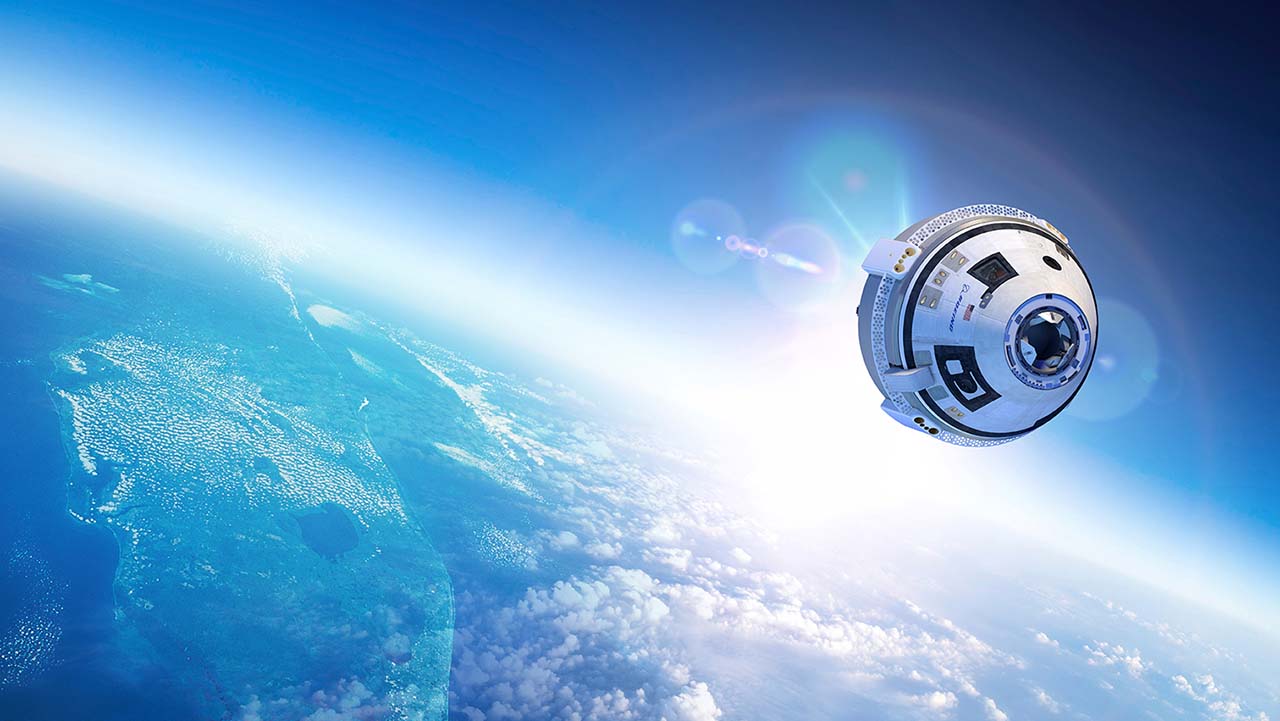
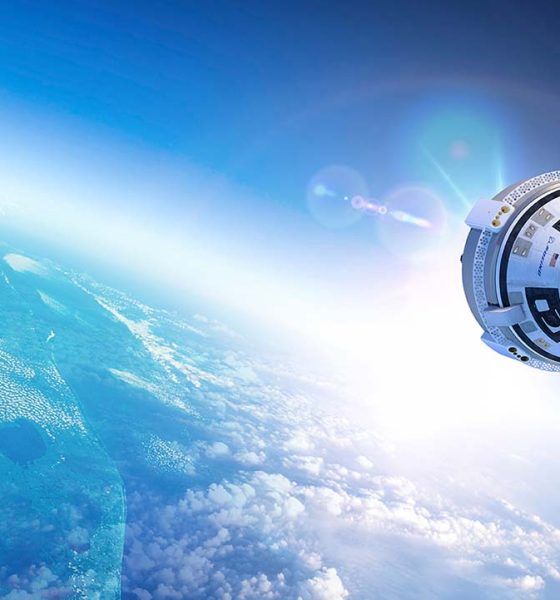
News
Boeing, NASA attempt Starliner landing after missing intended orbit
During the early morning hours of Friday, December 20th, at Space Launch Complex – 41 at Cape Canaveral Air Force Station United Launch Alliance successfully launched a uniquely configured, rated for human spaceflight Atlas V rocket topped with the Boeing Starliner crew capsule to complete its inaugural Orbital Flight Test to the International Space Station (ISS).
However, following the stunning sunrise launch and successful spacecraft separation, Starliner experienced an anomaly with an automated mission event timer which hindered a crucial orbital insertion burn from being completed.
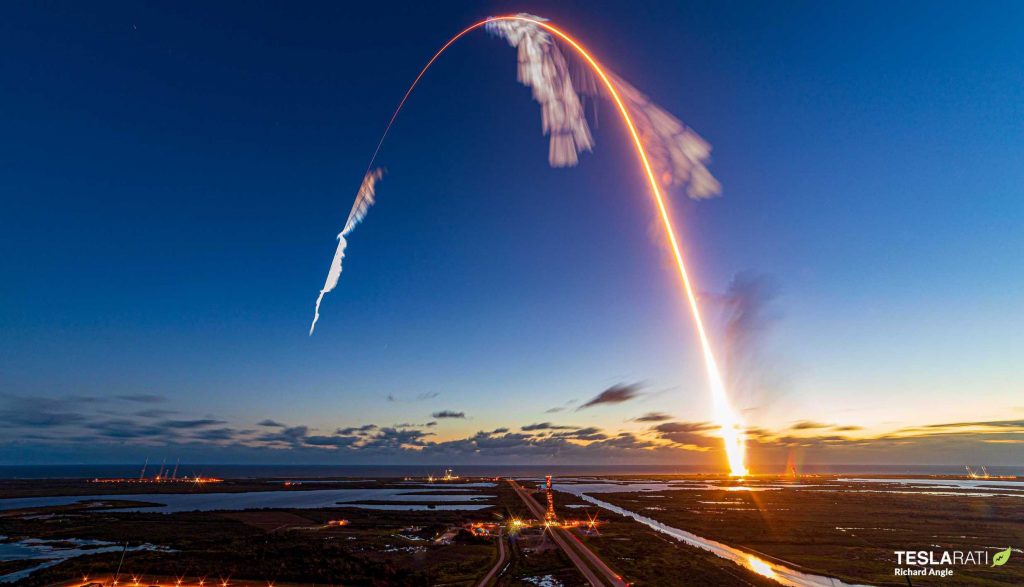
The missed burn and the resulting domino effect of consequences cut Starliner’s journey short. In a joint media teleconference held Saturday, December 21st including NASA Administrator Jim Bridenstine, Boeing senior vice president of Space and Launch Jim Chilton, and deputy manager of NASA Commercial Crew Steve Stich, it was confirmed that just 48 hours following launch Starliner is expected conclude the test flight and return for a controlled landing at White Sands Missile Range in New Mexico.
Initially, Starliner was expected to spend approximately 8 days docked on orbit with the ISS for a return journey tentatively scheduled to occur on December 28th. The lack of orbital insertion and consequential overuse of fuel consumed by smaller incremental burns performed throughout the day on Friday to place Starliner in a safe orbit all but guaranteed that the spacecraft would miss its opportunity to rendezvous and autonomously dock with the ISS, a pivotal objective of the orbital test flight. A fact that was later confirmed on Twitter by Bridenstine.
During the teleconference, Starliner was described as a healthy spacecraft that had in fact achieved circular safe orbit approximately 250km above sea level, lower than would have been achieved had the initial burn occurred as planned. As docking with the ISS was completely out of reach and Starliner remained under tight constraints of how long it could maintain free orbital flight, Boeing and NASA teams jointly decided to bring Starliner home as soon as possible.
While Starliner remained on orbit Friday and Saturday, flight controllers completed many OFT mission objectives. A number of the achievements were outlined in a statement posted to Boeing’s Starliner updates webpage.

“Entry, descent, and landing is not for the faint of heart.” – Jim Chilton
While many OFT mission objectives were successfully met during the dramatically cut short mission the entire goal of Starliner still remains. After all, Starliner is designed to ferry human astronauts safely to and from the ISS. A huge part of that is re-entering the Earth’s atmosphere and landing under survivable conditions.
Enough of Starliner’s fuel was preserved to afford multiple opportunities to safely land. Two opportunities to land at the planned site of White Sands Space Harbor on the White Sands Missile Range in New Mexico. This location may sound familiar as it is the same location where a different Starliner test capsule recently completed a pad abort test.
NASA and Boeing teams are targeting a landing attempt on Sunday 7:57 am EST (1257 GMT). Should it be needed a backup landing attempt at 3:48 pm EST (848 GMT) in the same location is also available. An anthropomorphic test dummy dressed in Boeing’s recognizable blue spacesuit inside the capsule nicknamed “Rosie the Rocketeer” is wired up with sensors to collect data reflecting the conditions a human astronaut would experience during descent.
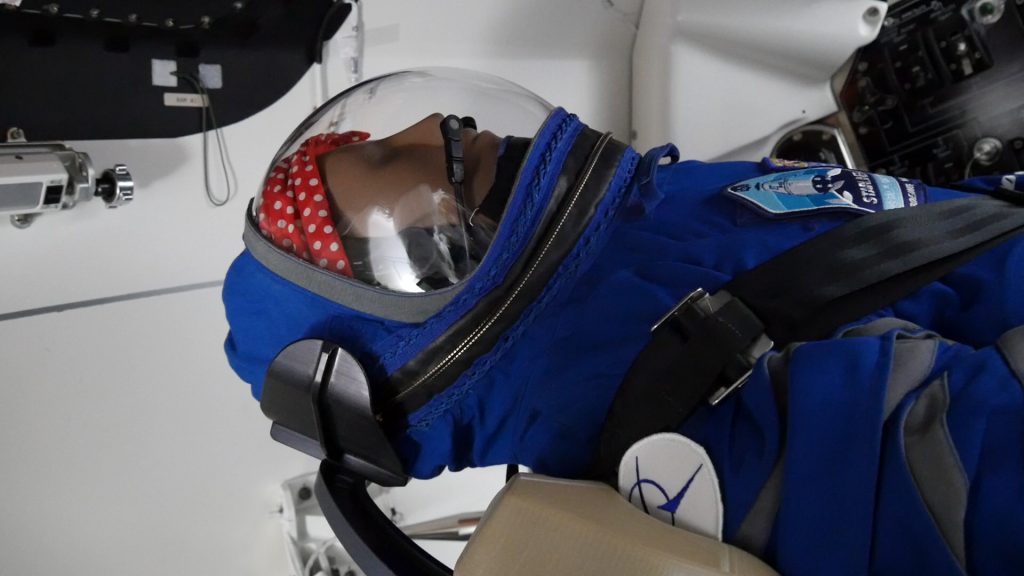
NASA will livestream the landing attempt and recovery efforts on NASATV beginning at 5:45 am EST (1045 GMT).
Check out Teslarati’s newsletters for prompt updates, on-the-ground perspectives, and unique glimpses of SpaceX’s rocket launch and recovery processes.

Elon Musk
SpaceX IPO could push Elon Musk’s net worth past $1 trillion: Polymarket
The estimates were shared by the official Polymarket Money account on social media platform X.

Recent projections have outlined how a potential $1.75 trillion SpaceX IPO could generate historic returns for early investors. The projections suggest the offering would not only become the largest IPO in history but could also result in unprecedented windfalls for some of the company’s key investors.
The estimates were shared by the official Polymarket Money account on social media platform X.
As noted in a Polymarket Money analysis, Elon Musk invested $100 million into SpaceX in 2002 and currently owns approximately 42% of the company. At a $1.75 trillion valuation following SpaceX’s potential $1.75 trillion IPO, that stake would be worth roughly $735 billion.
Such a figure would dramatically expand Musk’s net worth. When combined with his holdings in Tesla Inc. and other ventures, a public debut at that level could position him as the world’s first trillionaire, depending on market conditions at the time of listing.
The Bloomberg Billionaires Index currently lists Elon Musk with a net worth of $666 billion, though a notable portion of this is tied to his TSLA stock. Tesla currently holds a market cap of $1.51 trillion, and Elon Musk’s currently holds about 13% to 15% of the company’s outstanding common stock.
Founders Fund, co-founded by Peter Thiel, invested $20 million in SpaceX in 2008. Polymarket Money estimates the firm owns between 1.5% and 3% of the private space company. At a $1.75 trillion valuation, that range would translate to approximately $26.25 billion to $52.5 billion in value.
That return would represent one of the most significant venture capital outcomes in modern Silicon Valley history, with a growth of 131,150% to 262,400%.
Alphabet Inc., Google’s parent company, invested $900 million into SpaceX in 2015 and is estimated to hold between 6% and 7% of the private space firm. At the projected IPO valuation, that stake could be worth between $105 billion and $122.5 billion. That’s a growth of 11,566% to 14,455%.
Other major backers highlighted in the post include Fidelity Investments, Baillie Gifford, Valor Equity Partners, Bank of America, and Andreessen Horowitz, each potentially sitting on multibillion-dollar gains.
News
Tesla expands global FSD (Supervised) testing with Abu Dhabi trials
The program marks the emirate’s first formal testing framework for Tesla’s supervised autonomous driving technology.
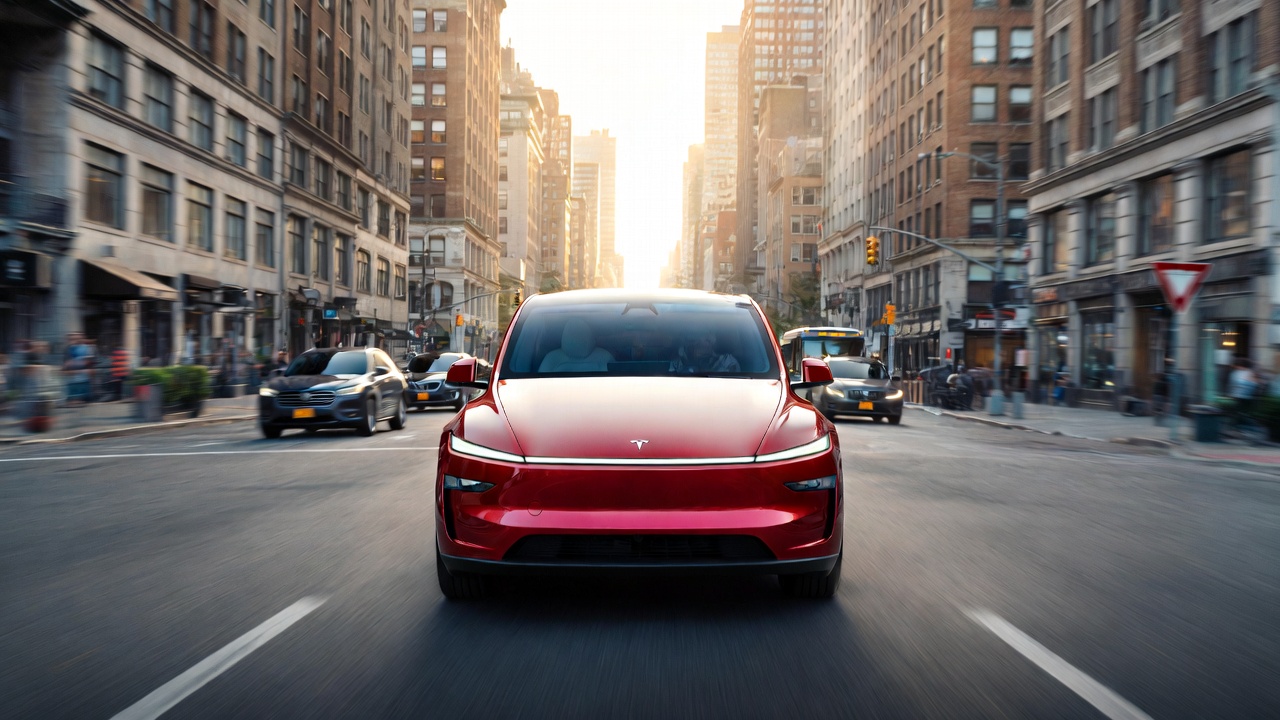
Tesla has started its first Full Self-Driving (Supervised) road trials in Abu Dhabi under the oversight of the Integrated Transport Centre, also known as Abu Dhabi Mobility.
The program marks the emirate’s first formal testing framework for Tesla’s supervised autonomous driving technology.
FSD (Supervised) road trials are being conducted with the support of the Smart and Autonomous Systems Council and in coordination with the Legislation Lab at the General Secretariat of the UAE Cabinet.
Dr. Abdulla Hamad AlGhfeli, Acting Director General of the Integrated Transport Centre (Abu Dhabi Mobility), highlighted the agency’s regulatory role in overseeing the FSD (Supervised) tests in a press release.
“The supervision of the Integrated Transport Centre (Abu Dhabi Mobility) over the commencement of Tesla’s advanced autonomous driving technology tests reflects its regulatory and legislative role. These tests represent a qualitative step to evaluate the technology’s performance in a real-world operating environment and to collect the necessary data to verify its readiness before any future expansion in usage.
“Through this organized framework, and in cooperation with strategic partners, we seek to achieve a balance between supporting innovation and encouraging the adoption of smart solutions on one hand and ensuring the safety of road users on the other, in line with the emirate’s direction to develop an advanced, safe, and sustainable transport system,” he said.
Tesla is putting a lot of effort into expanding the rollout of FSD (Supervised) to territories outside in the United States. During a recent interview with Giga Berlin plant manager Andre Thierig, Musk stated that Tesla is looking to secure approval for FSD (Supervised) in the Netherlands this coming March.
“Tesla has the most advanced real-world AI, and hopefully, it will be approved soon in Europe. We’re told by the authorities that March 20th, it’ll be approved in the Netherlands,’ what I was told. Hopefully, that date remains the same. But I think people in Europe are going to be pretty blown away by how good the Tesla car AI is in being able to drive,” Musk stated.
Elon Musk
SpaceX considering confidential IPO filing this March: report
The filing could pave the way for a June listing at a valuation that may exceed $1.75 trillion.
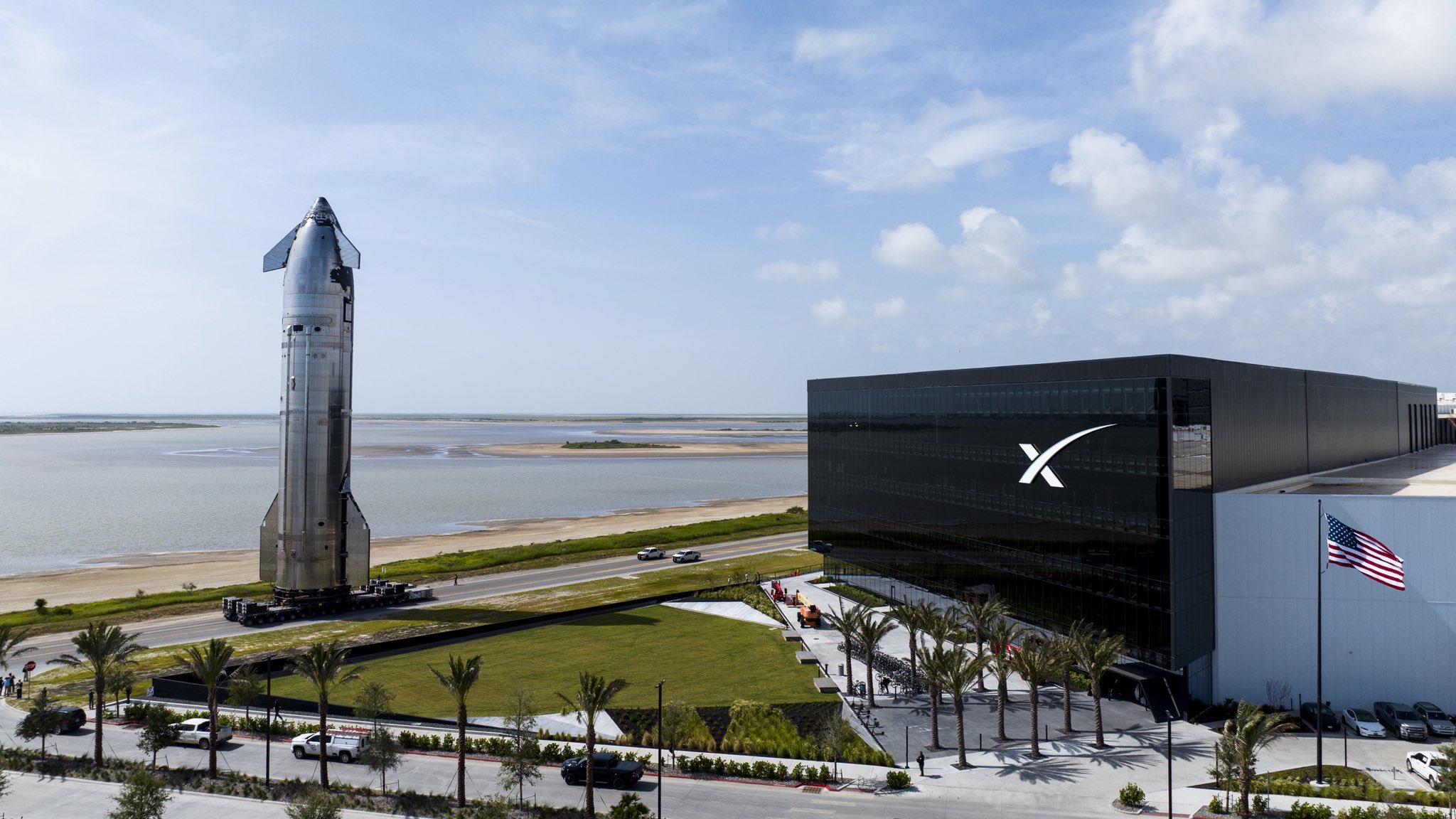
SpaceX is reportedly preparing to confidentially file for an initial public offering (IPO) as soon as March. The filing could pave the way for a June listing at a valuation that may exceed $1.75 trillion, potentially making it the largest IPO in history.
The update was initially reported by Bloomberg News, which cited information shared by people reportedly familiar with the matter.
As per the publication, a confidential filing allows a company to receive regulatory feedback before publicly releasing its financials. Bloomberg’s source, however, noted that the timing of SpaceX’s IPO is still under discussion and plans could change.
SpaceX did not immediately respond to requests for comment.
A March submission would mark the clearest step yet toward bringing Elon Musk’s private space company into public markets. People familiar with the preparations said the offering could raise as much as $50 billion. That would surpass the $29 billion debut of Saudi Aramco in 2019, currently the largest IPO on record.
Major banks including Goldman Sachs Group Inc., JPMorgan Chase & Co., Morgan Stanley, and Bank of America Corp. are reportedly positioned for senior roles in the transaction. SpaceX is also said to be considering a dual-class structure that would allow insiders, including Musk, to retain enhanced voting control.
Satellite communications provider EchoStar Corp., which holds a stake in SpaceX, reportedly saw its shares rise following news of the potential filing.
At a valuation exceeding $1.75 trillion, SpaceX would immediately have a larger market cap than all but five of the companies traded in the S&P 500 index. That figure would place it ahead of Meta Platforms Inc. and Tesla Inc. by market capitalization, trailing only a small group of mega-cap firms such as Apple Inc. and Microsoft Corp.
The scale of the proposed valuation reflects SpaceX’s dominance in orbital launch services and its Starlink satellite network, which serves millions of users globally. The company has also outlined long-term expansion plans tied to higher Starship launch cadence, orbital infrastructure, and lunar development initiatives.








